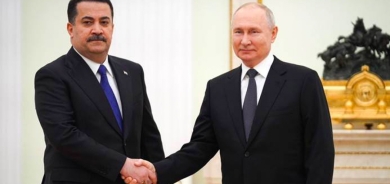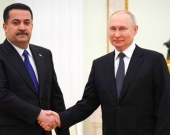Islamic Resistance in Iraq (IRI) Targets Israeli Site Amid Escalating Regional Tensions

Amidst a backdrop of escalating tensions in the region, the Islamic Resistance in Iraq (IRI) has announced a significant development. On Sunday, the group claimed responsibility for targeting a "vital" location in the Israeli city of Eilat (Umm al-Rashrash) using unmanned aerial vehicles (UAVs). This action follows closely on the heels of an attack on the Golan Heights the day prior.
In a statement released to the media, the IRI reiterated its commitment to striking at what it terms "enemies' strongholds," affirming its support for the people of Gaza and framing its actions as retaliation against perceived Israeli aggression. The IRI, a collective term encompassing Tehran's military allies in Iraq, including Kataeb Hezbollah and Harakat Al-Nujabaa, is a prominent member of the "Axis of Resistance," which also includes Lebanon's Hezbollah and the Yemeni Ansarallah (Houthis), among others.
Since the commencement of Israeli military operations in Gaza, the IRI has been actively targeting US interests in Iraq and Syria, as well as Israeli sites within Palestine. Notably, the group claimed responsibility for a deadly attack in Jordan, where Kataeb Hezbollah reportedly killed three American soldiers at a US base.
In response to these attacks, the US military has launched airstrikes on sites associated with Iranian-backed forces in Iraq and Syria, resulting in casualties among members of the Popular Mobilization Forces (PMF) in Iraq, as well as commanders of the Iranian Revolutionary Guards (IRGC) and Lebanon's Hezbollah in Syria.
All factions within the Axis of Resistance have vowed to continue their attacks until a ceasefire is achieved in the Gaza Strip. The conflict in Gaza has exacted a heavy toll, with approximately 33,000 Palestinians, predominantly civilians including children and women, reported dead, and a further 76,000 injured. Moreover, an estimated 1.5 million people have been displaced, and the Gaza Strip is facing dire humanitarian conditions, including famine, exacerbated by restrictions on humanitarian aid.
The situation remains volatile, with tensions high and the possibility of further escalation looming large as regional actors continue to engage in retaliatory actions amidst ongoing hostilities.














